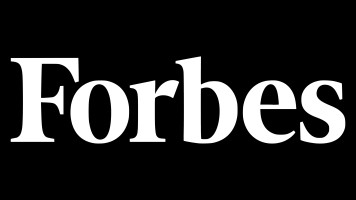Meet The Powerhouse Women That Have Turned Kevin Hart’s Laugh Out Loud Into A Global Comedy Brand

Meet The Powerhouse Women That Have Turned Kevin Hart’s Laugh Out Loud Into A Global Comedy Brand:
While the talent we see on our TV screens has begun to diversify and characters look more like those of us watching, according to a recent McKinsey & Company study, the film and TV industry remains disproportionately white. Diversity off-screen is particularly where underrepresentation is most prevalent with less than 6 percent of the writers, directors, and producers of US-produced films being Black.
The McKinsey study found that “fewer Black-led stories get told, and when they are, these projects have been consistently underfunded and undervalued, despite often earning higher relative returns than other properties.” An inequality that persists in this space and costs Hollywood $10 Billion in missed revenue.
In a mostly homogenous industry, multi-platform brands such as Kevin Hart’s Laugh Out Loud are breaking the mold by ensuring that the elevation of Black voices in entertainment are core to its business foundation. With its efforts focused both in front of and behind the camera, LOL sets itself apart from others in the industry by creating one of few spaces where you will find several Black women in comedy and in leadership positions.
At the helm of LOL’s strategy are two leading Black female executives, Thai Randolph (President & COO) and Candice Cherry (Head of Production & Development), helping to build the network and studio into a multi-platform comedy brand with a global distribution reach of over 200 million consumers. Under their leadership, the company also hit a major milestone of 2.2 billion content views across its portfolio, which includes 22 original series, over 300 original stand-up specials and more.
For these women in power, diversity is more than just a buzzword but a cornerstone of their leadership at LOL. “I think this idea of being diverse by design is really a key differentiator for us,” says Randolph. “We think of diversity not as a goodwill initiative but instead as a key strategic pillar.” Centering Black voices and recognizing its value has proved to be not only profitable for the brand and talent involved, but also key to driving culture and comedy forward.
In the past year alone, both women have been paramount to securing lucrative partnerships and launching innovative programming that produce diverse, relevant, and innovative entertainment globally. Randolph, an award-winning marketer and business leader, led the expansion of LOL Audio’s offerings by partnering with Simon & Schuster to bring the franchise to audiobook format, co-led a capital raise and partnership deal with NBCUniversal’s Peacock, structured the deal that brought LOL’s Comedy in Color franchise (featuring 300 diverse comedians from 30 different countries) to the Just for Laughs Festival, and expanded LOL’s programming on SiriusXM/Pandora. While Cherry leads the discovery of bold and original stories, including producing Hart’s own original talk show titled, Hart to Heart on Peacock as well as this summer’s series “Olympic Highlights with Kevin Hart & Snoop Dogg”.
Yet with all accomplished, their proudest achievement to date is how they continue to carve out opportunities of mentorship, advocacy, production, and exhibition through its programming. Most notably, the launch of Women Write Now — a first-of-its-kind screenwriting fellowship developed in partnership with the Sundance Institute. “When we first started, we said it can’t just be a box that we’re checking. We didn’t want it to be a vanity program and we’ve seen so many of these,” states Randolph. “We had to ensure that we have the authority to go out and actually finance this. We have to be empowered in positions that we could actually make this. Which I think is a testament to the organization that we’re in and the support that we have from Jeff [Clanagan] and Kevin.”
Designed to champion the next generation of Black women in comedy through mentorship, advocacy, production, and exhibition, Women Write Now will offer three talented writers the opportunity to see their original comedic screenplay developed and produced into a featured short by LOL! Studios, directed by a celebrity Black female comedian, and premiered during the 2022 Sundance film festival. “We wanted something that if they were put into a writers room six months from now, the participants would understand what that looks like. They understand what’s expected of them. They understand what they need to do to show up,” describes Cherry. “So we wanted the process to really model a process that is in line with industry standards.”
Both Randolph and Cherry’s philosophy of lifting as they climb is inspired by the powerful examples that were demonstrated at home growing up and whose shoulders they stand on today. For Cherry’s, watching her mom navigate entrepreneurship as an immigrant from Jamaica was her earliest lesson on the type of woman in business that Cherry aimed to be. “When she started a business, she would make sure that we were there with her at the Jacob Javits Center to understand what businesses look like,” describes Cherry. “She was instilling in us this really strong work ethic, this idea that you live your life in chapters and you count every experience as a value because it becomes currency for the destinations in your life that you haven’t even journeyed to yet.”
Beyond mastering a skill set, Randolph and Charles recognize that making it in Hollywood requires much more than talent. Central to their mission is leveraging their positions to hire others, elevate others and bring them along as they enter new spaces. Here they both share some advice for young Black creatives who might want to follow in her footsteps and share why diversity truly matters. Here’s what they had to say:
Know that your voice has value
For many young talents who enter rooms where they may be the first, different and only, the natural instinct is sometimes to shrink back or blend in with the majority. Cherry recognized early on that her voice not only had value but was required in many of the spaces she entered. Moving to Los Angeles for songwriting and vocal arranging led to helping friends out on set in film and TV, which eventually brought her to a career she loved working at Lionsgate Codeblack Films with Jeff Clanagan. During this time were the defining moments that helped her find her place as a young executive producer. “You just want to fit in and do good but then you realize that specifically as a Black woman that your voice is crucial in the room,” says Cherry. “Your voice has value. It is needed. It adds value to all spaces. And the more you understand that, the more that you bring your authentic self to any situation and that’s where you’re able to actually affect change.”
Cultivate your room
At LOL, the brand’s goal is to create programming that reflects the world around us. “I think it’s always very interesting to me when either the boardroom, the executive ranks or the product someone puts out isn’t reflective of the actual consumer base in the market,” explains Randolph. “We can look at audiences of color and how they’re over-indexing across pretty much every media type. When you look at content that is diverse in terms of gender and racial-ethnic composition, again and again it’s breaking records on these platforms.” Audiences want to see content that looks like them. Randolph and team are very purposeful in making sure this happens, “We’ve been very deliberate in making sure that this is a priority. But that doesn’t begin on the screen or how something is cast,” describes Randolph. “It begins with who is in the room from a green light perspective. So, you know, when you’ve got the composition that we have at the executive level to the admin level…then like attracts like.”
Advocacy is actionable
Cherry adds that diversity is about much more than what meets the eye, “once the headlines simmer down, you still need to have actionable change that sticks,” she states. “So it’s crucial for the greenlighters, the financiers – you need to have diversity in those spaces. And for me, when I say diversity, that’s both ethnically diverse and that’s gender-diverse. You also need to have diversity in your sensibility and mindset. Good business trickles down from the top.” This means reaching outside of our comfort zones to find new faces. “I think people naturally tend to have bias, even if it’s unconscious bias. So it’s about stretching outside of where you normally find talent,” describes Cherry. “When I say talent, I don’t necessarily mean on-camera talent. I mean executives. I mean your line producers and your show runners. If you don’t have diversity in those spaces, you’ll continue to have bias in a variety of areas.” To Cherry, advocacy is the active form of mentorship and transcending into these rooms. “You need someone who says, ‘OK, not only do I see your talent but I am going to amplify that, promote it and give you the opportunity’. And this isn’t about affirmative action,” states Randolph. “This is about getting equal opportunity to the most qualified people in every scenario. But there’s all sorts of inherent bias in these processes.”
Dream of lifting others up
Filmmaker Ava Duvernay once said, “if your dream only includes you, it’s too small” and that’s the mantra that Randolph has chosen to be the compass for her life and career. “When we’re kids we say ‘this is what I want to be when I grow up’. And you think about it from a sense of how to bring your unique set of gifts or passions to the table.” says Randolph. “Then at some point – you’re managing a team or you’re an individual contributor, an organization, or attached to an artistic project – you start to realize that your decisions have this kind of ripple effect.” Coming from this perspective helps Randolph recognize when opportunities do not align with her values. Such as the time earlier in her career when she worked for a company that did a lot of aerospace and defense and telecom marketing events. Seeing an actual missile system roll out on the trade show floor helped her realize that her work was not in alignment with her values. Learning from this experience, she now checks in with herself first, “I do this gut check and ask myself if I am doing something that contributes to a larger opportunity that is helping someone else.”
View this article at Forbes.

 Previous Post
Previous Post Next Post
Next Post
